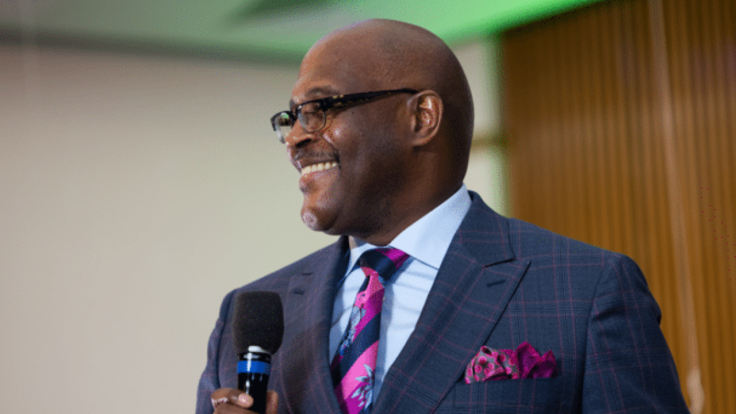Who Is Pastor Marvin Winans? Outrage After He Shames A Mum Who Gave $1,200 Instead Of $2,000 'Donation'
Pastor Marvin Winans sparks outrage after shaming a mother for a $1,200 donation.

It was a moment of faith that turned into one of public humiliation. As Roberta McCoy approached the pulpit at Detroit's Perfecting Church, her young son by her side, she offered what she could: £960 ($1,200). But for Bishop Marvin Winans, it wasn't enough.
'That's only £960. That ain't what I asked you to do', Winans reportedly declared, interrupting her offering. He had requested £1,600 ($2,000) from his congregants.
The shocking rebuke was caught on camera, and a clip soon exploded on TikTok, thrusting the pastor, his church, and the ethics of fundraising into a harsh national spotlight.
Who Is The Pastor Behind The Pulpit?
Marvin Winans is no stranger to the public eye. Born into the celebrated Winans musical family, he is a renowned gospel singer and has led the Perfecting Church since 1989. He even made appearances on Tyler Perry's sitcom, House of Payne.
Winans is known for his ambitious vision, including a church construction project once estimated to cost between £8–£9.6 million ($10–$12 million). However, such grand-scale projects throw the gap between the church's financial goals and the average congregant's ability to give into sharp relief.
A 'Donation' Demand That Ignored Reality?
The demand for £1,600 ($2,000) has been widely criticised as tone-deaf, especially when the median household income in Detroit is around £26,000 ($32,500). Critics argue that insisting on specific, substantial amounts creates immense financial pressure and can alienate the very people the church is meant to support.
This incident has reignited fierce debates over the 'prosperity gospel', a controversial belief that financial donations will yield spiritual and material blessings in return. With nearly 13% of Americans living below the poverty line, experts warn that these high-pressure tactics can feel deeply exploitative.
Discipline or Disconnect? A Congregation Divided
The backlash was swift, but opinion is split. Some observers defend the pastor's actions, framing the public correction as a form of 'spiritual discipline' intended to encourage faithful giving.
Others, however, see it as a coercive and insensitive abuse of power. They argue that public shaming not only damages trust but also fundamentally undermines the church's spiritual mission and sense of community. The episode highlights a delicate and often fraught relationship between church leadership, congregant expectations, and financial accountability.
For many, this viral moment has become a lesson in what can happen when financial demands overshadow empathy. It raises critical questions about how faith leaders can balance operational needs with the pastoral care and well-being of their members, ensuring that giving remains an act of faith, not of fear.
© Copyright IBTimes 2025. All rights reserved.





















